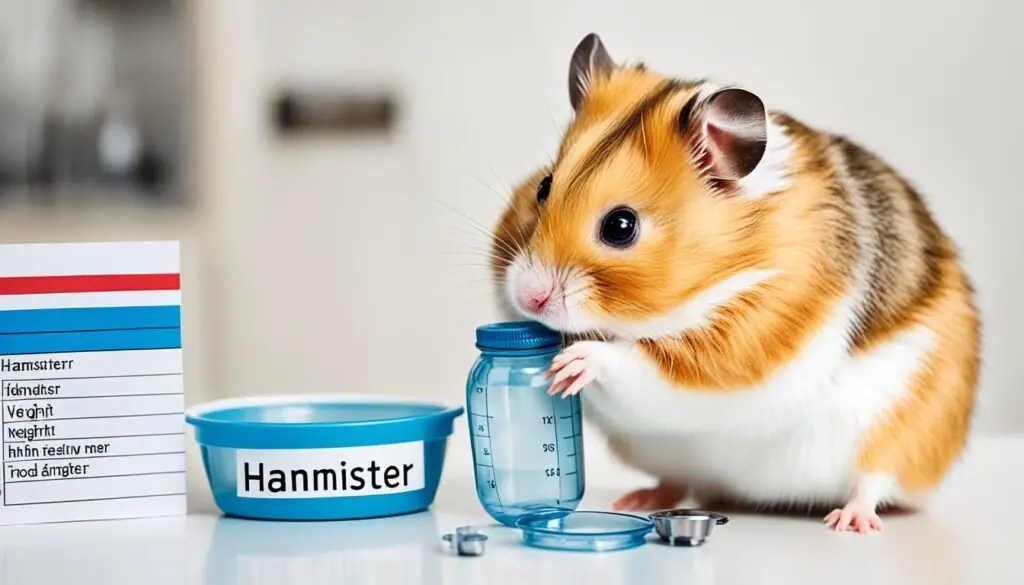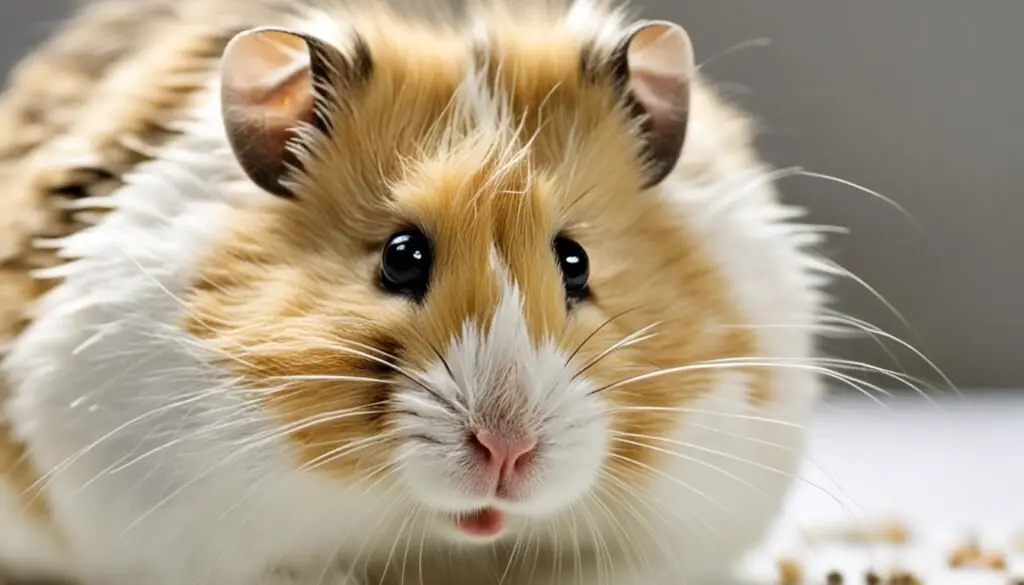Did you know that weight loss in hamsters can be an alarming sign of underlying health concerns? If your hamster is losing weight, it’s essential to understand the reasons behind it. Hamsters are not naturally skinny creatures, so any noticeable weight loss should be a cause for concern. In this article, we will explore the various factors that can contribute to a hamster becoming skinny and discuss proper nutrition and veterinary care to address weight loss in hamsters.
Signs of Underweight Hamster
To ensure the well-being of your furry friend, it is crucial to be able to identify the signs of an underweight hamster. By keeping an eye out for these indicators, you can take appropriate measures to address the issue and ensure your hamster’s health.
One way to assess your hamster’s weight is by gently rubbing its body and feeling for its ribs. If you can easily feel the ribs and there is minimal flesh covering them, it is a sign that your hamster may be underweight.
Additionally, pay attention to your hamster’s body shape. If it appears skinny and lacks the usual plumpness or cushion of flesh, it could indicate that your hamster is not at a healthy weight.
Regularly weighing your hamster can also provide valuable insights into its weight status. This can be done using a small, accurate scale specifically designed for weighing small animals. Compare your hamster’s weight to the average healthy weights for its specific breed to determine if it falls within the healthy range.
By being observant and proactive, you can detect the signs of an underweight hamster and take the necessary steps to ensure its well-being and return it to a healthy weight.

Common Causes of Hamster Weight Loss
Weight loss in hamsters can be attributed to several common causes. It is crucial to understand these factors in order to address the issue effectively and ensure the well-being of your pet.
Under-Feeding in Hamsters
One of the primary reasons for hamster weight loss is under-feeding. Providing an insufficient amount of food can lead to a hamster not being able to maintain a healthy weight. It is important to ensure that your hamster receives an appropriate and balanced diet on a daily basis.
Nutritional Deficiencies
Nutritional deficiencies, especially the lack of protein in the hamster’s diet, can contribute to weight loss. A diet lacking in essential nutrients can adversely affect the hamster’s overall health and cause it to lose weight. Make sure to provide a varied and nutritious diet that fulfills all the dietary requirements of your hamster.
Dental Issues in Hamsters
Dental issues are another common cause of weight loss in hamsters. Overgrown or broken teeth can make it difficult for hamsters to eat properly, resulting in weight loss. Regular dental check-ups and providing appropriate toys and treats that help wear down their teeth can help prevent dental problems.
To ensure your hamster maintains a healthy weight, it is important to address these common causes of weight loss and provide proper nutrition, regular veterinary care, and a suitable environment for your pet to thrive.
Health Concerns and Weight Loss in Hamsters
Weight loss in hamsters can be concerning and may indicate underlying health issues. Two common health concerns that can cause weight loss in hamsters are wet tail and kidney inflammation.
Wet Tail in Hamsters

Wet tail is a serious condition characterized by excessive diarrhea in hamsters. It is most common in young hamsters and can be deadly if not treated promptly. The symptoms of wet tail include wetness and staining around the hamster’s genitals, foul odor, lethargy, and a decrease in appetite. If you notice these symptoms or any sudden changes in your hamster’s behavior, it is important to seek veterinary care immediately.
Kidney Inflammation in Hamsters
Kidney inflammation, also known as nephritis, can also lead to weight loss in hamsters. This condition is more common in Russian and Chinese hamsters and can be caused by various factors, including infections, genetics, and certain medications. Symptoms of kidney inflammation may include frequent urination, loss of appetite, lethargy, and changes in urine color or consistency. If you suspect your hamster may have kidney inflammation, it is crucial to consult a veterinarian for proper diagnosis and treatment.
Remember, any sudden changes in behavior or appearance in your hamster should be taken seriously and should prompt a visit to the veterinarian. Early detection and treatment of health issues are important for the well-being and overall health of your furry little friend.
Addressing Weight Loss in Hamsters
If you’re concerned about your hamster’s weight loss, addressing the issue promptly is crucial. Proper care and nutrition are essential for helping your skinny hamster regain a healthy weight.
An effective way to increase your hamster’s body weight is by adding extra protein to its diet. Consider incorporating food options such as hard-boiled eggs, cooked chicken, or mealworms. These protein-rich treats can help your hamster build muscle and gain weight.
However, it’s important to provide treats and additional food in moderation. Excessive sugar intake can lead to dental issues and other health problems for your hamster. Therefore, ensure a balanced diet that includes the right amount of protein for your furry friend’s specific needs.
Creating a clean and comfortable environment for your hamster is also crucial for addressing weight loss. Make sure their living space is well-maintained, with fresh bedding, clean water, and a balanced diet. Your hamster’s mental and physical well-being depend on a conducive environment.
Regular veterinary check-ups are essential to monitor your hamster’s progress and address any underlying health concerns. A veterinarian can provide tailored advice to suit your hamster’s specific needs and ensure their overall well-being.
Remember, patience is key when addressing weight loss in hamsters. Give your hamster time to adjust to the changes in their diet and environment. With proper care, nutrition, and veterinary guidance, your skinny hamster can thrive and regain a healthy weight.
Preventing Weight Loss in Hamsters
To ensure that your hamster maintains a healthy weight, it is crucial to provide them with a proper diet that includes a balanced mix of nutrients. Consider their specific breed and size when determining the appropriate amount of food to feed them each day. A well-balanced diet will help prevent weight loss and promote overall health.
In addition to a nutritious diet, regular exercise is essential for your hamster’s well-being. Providing them with opportunities for physical activity, such as a running wheel, will help them burn calories and maintain a healthy weight. Just like humans, hamsters need exercise to stay fit and avoid weight problems.
Reducing stress in your hamster’s environment is also important for preventing weight loss. Creating a calm and comfortable living space, with plenty of hiding spots and toys, can help reduce stress levels. Additionally, addressing any behavioral issues promptly and providing mental stimulation can contribute to a healthier and happier hamster.
Remember, regular veterinary check-ups are essential for monitoring your hamster’s weight and overall health. Your vet can provide guidance on proper nutrition, exercise, and stress reduction techniques. By taking proactive measures and providing the best care, you can help prevent weight loss and ensure a long and happy life for your beloved hamster.
